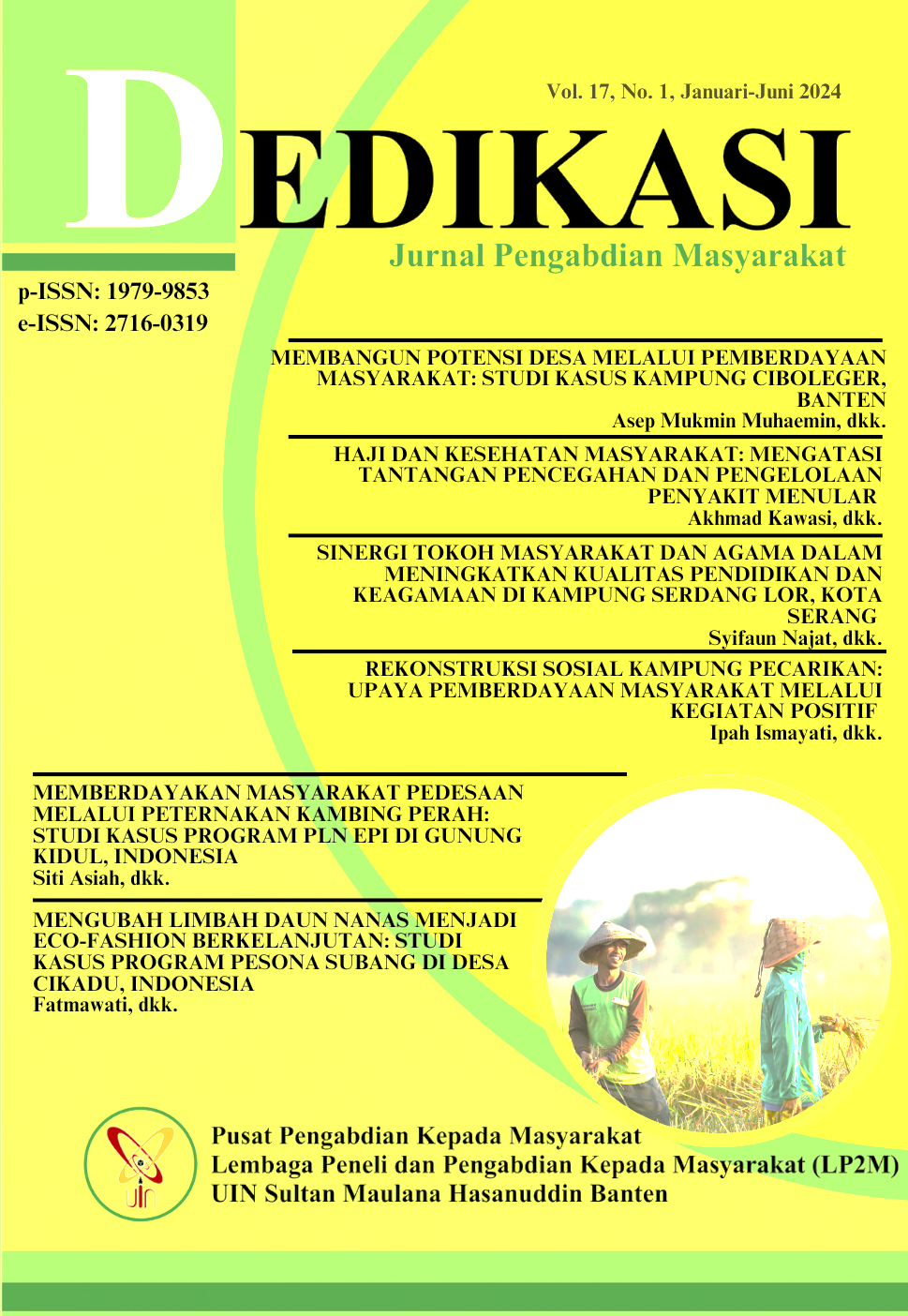Mengubah Limbah Daun Nanas Menjadi Eco-Fashion Berkelanjutan: Studi Kasus Program PESONA SUBANG di Desa Cikadu, Indonesia
DOI:
https://doi.org/10.32678/dedikasi.v17i1.11033Keywords:
Pineapple Leaf Waste, Eco-Fashion, Community Empowerment, Sustainable TextilesAbstract
The conventional textile industry produces significant waste and has a negative impact on the environment. The PESONA SUBANG program in Cikadu Village, Indonesia, offers an innovative solution by turning pineapple leaf waste into sustainable eco-fashion products. This case study explores this program, focusing on aspects. Pineapple leaf waste recovery: This program utilizes previously disposed pineapples leaf wastes as textile fiber raw materials. Empowerment of communities: The program empowers local communities by providing training in sustainable practices, creating job opportunities in fiber processing, and supporting the production of eco-fashion products. Environmental impact: The program reduces environmental impact by upcycling pineapple leaf waste into valuable fibers, decreasing carbon emissions, and fostering sustainable textile production. This case study shows that the SUBANG PESONA Program is a successful example of turning waste into a value-added product with economic and environmental benefits. The program's replicability lies in its ability to transform waste into valuable resources, benefiting both the environment and local communities. By adopting similar initiatives, other regions can improve textile industry sustainability and community empowerment.
Downloads
Downloads
Published
Issue
Section
License
Copyright (c) 2024 Fatmawati Fatmawati, Cecep Hidayat, Sendy Anugrah Sutisna Putra, Nandang Akhmad Kosasih

This work is licensed under a Creative Commons Attribution 4.0 International License.





